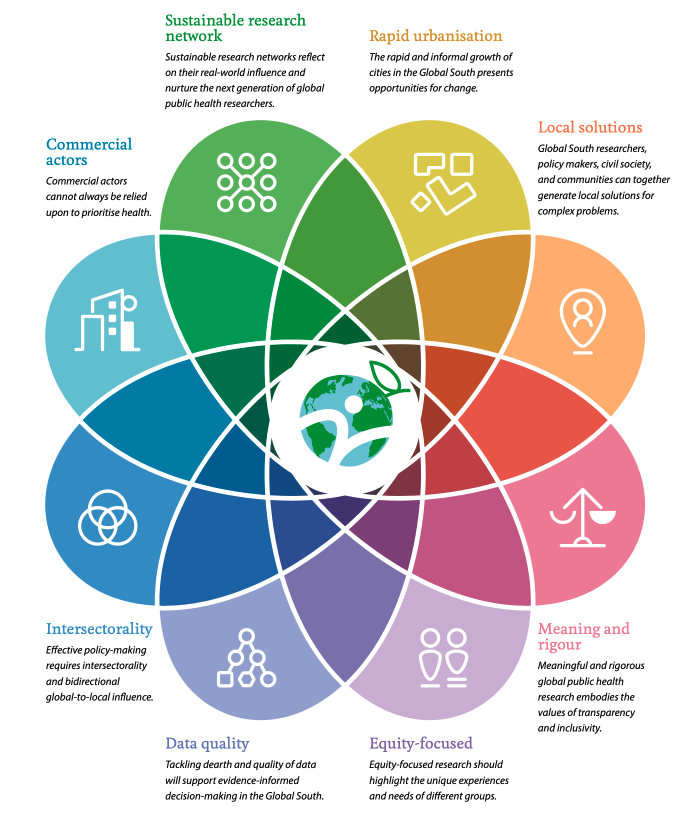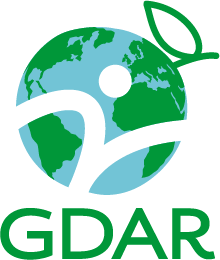This report summarises the key findings, messages, and lessons learned by the Global
Diet and Activity Research (GDAR) Network. Since 2017, we have been producing and synthesising evidence on the sustainable prevention of non-communicable diseases through the creation of built and food environments that support optimal physical activity and diet across Global South cities.
This report provides a record of eight years of research, which we hope will be useful for all those who have contributed to GDAR, as well as for other researchers, decision makers, funders, and civil society. You can skip directly to a message that is relevant to you or follow through the full report. We have distilled our research into eight key messages with all GDAR outputs available in the bibliography.

Making sense of the evidence at the intersection of cities, climate, and health
In summary, the rapid and informal growth of cities in the Global South creates opportunities for transformative change, where local researchers, policy makers, and civil society can collaborate to address complex societal challenges. Meaningful global public health research should be grounded in transparency and inclusivity, recognising the distinct needs and experiences of diverse groups. Addressing dearth, quality, and access to data is critical to facilitate evidence-based decision-making. Effective policies must integrate intersectoral approaches and align global strategies with local realities. Researchers play a key role in civil society through contributing evidence to debate (particularly on challenging the influence of multinational corporations), through enabling advocacy, and through producing practice-based evidence that is useful to diverse audiences. For this, sustainable research networks are essential; they must reflect on their real-word impacts and invest in fostering the next generation of global public health researchers.
Find the full report on the website here or below.

